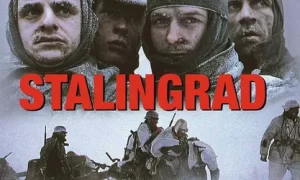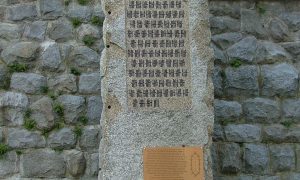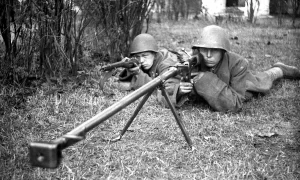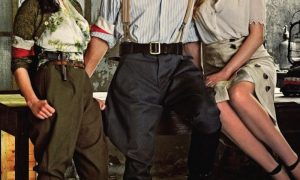David Alexandrovich Dushman ( April 1, 1923 , Danzig – June 4, 2021 , Munich ) – Red Army soldier and athlete, coach of the Soviet Olympic fencing team . He was the last surviving liberator of the Auschwitz concentration camp . The T-34 driver-mechanic took part in the Stalingrad and Kursk battles. Honored Trainer of the USSR .

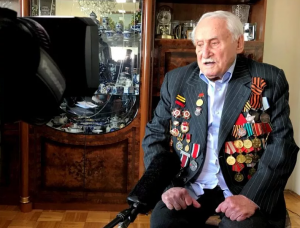
The Second World War
Voluntarily joined the Red Army, became a tank driver and took part in the Stalingrad and Kursk battles. Received more than forty awards and insignia, including the Order of the Patriotic War .
On January 27, 1945, he drove his T-34 through the fence of the Auschwitz-Birkenau concentration camp in occupied Poland , thereby starting the liberation of the camp. In the camp, he saw hungry people and heaps of corpses. Later he recalled: “we threw them all our canned food and immediately went to pursue the Nazis”.
During the war he was seriously wounded three times. He was one of 69 soldiers out of 12,000 men in his division who survived the war.
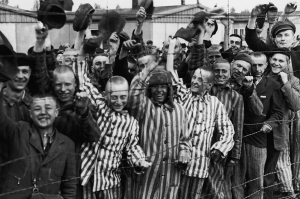
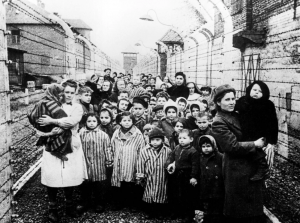
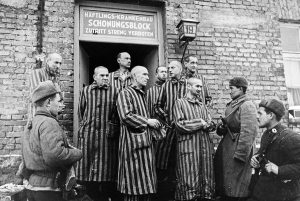
Fencing career

Fencing symbol at the Olympics
After the war, Dushman became a professional swordsman . In 1951 he became the champion of the USSR in fencing with epee, then – the coach of the “Spartak” club. From 1952 to 1988 he coached the women’s fencing team of the Soviet Union. Many Olympic champions have gone through his school. His pupils were the 1956 world champion in the team championship Tamara Yevplova , two-time Olympic champion, multiple winner and medalist of the world championships Umyar Mavlikhanov , an outstanding Soviet foil fencer, Olympic champion, nine-time world champion Valentina Sidorova . At the 1972 Olympics in Munich, Dushman’s students won two gold, two silver and three bronze medals .
Thomas Bach , President of the International Olympic Committee (IOC) and former Olympic fencing champion representing West Germany , recalled that when he met Dushman in 1970, he “immediately offered his friendship and advice, despite his personal experience in WWII. war and Auschwitz ”. Bach added that this act was “such a profound human gesture that I will never forget it”.
Dushman kept giving fencing lessons at a local club almost every day, until he was in ’94.



